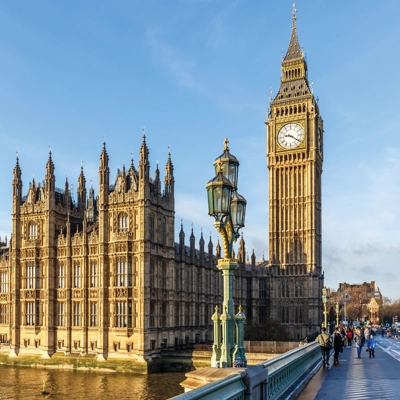Inheritance Tax on pensions – an adviser’s perspective
Potential Inheritance Tax changes could affect advice on pensions and intergenerational wealth. Using two adviser surveys and an interview with Twelve Wealth Management’s Jonathan Pollock, we explore key challenges and opportunities.
This article is not advice. It is provided for information purposes and should not be treated as a recommendation. Advisers remain responsible for the advice they provide to their clients.

Inheritance Tax (IHT) can be a sensitive subject, and the government’s announcement earlier this year has brought it firmly back into focus for advisers and clients.
From 06 April 2027, any unspent defined contribution (DC) pension funds will count towards Inheritance Tax. While death-in-service benefits and payments to a spouse, civil partner, or registered charity remain exempt, it could hit families hard.
Unsurprisingly, this has triggered client concerns. In our March survey, 92% of advisers said the new rules were their clients’ biggest worry. In July’s follow-up, 77% reported their clients were concerned about leaving large tax bills to their descendants.
Pensions have traditionally allowed people a tax-free cushion to pass on to their families. Now, they’re having to rethink what this might mean for their wealth – and what the right response might be.
Why changes to Inheritance Tax on pensions matter
The government says the change is about closing a loophole and keeping pensions focused on retirement. However, critics note the change will also generate an estimated £1.5bn for the Treasury each year by 2030. They also argue it disrupts long-standing estate planning strategies and undermines confidence in the retirement system.
Jonathan Pollock, a Financial Adviser at Twelve Wealth Management, takes up the story.
‘Most clients set up their estate planning to have no IHT on second death. Bringing pensions into that estate could double the estate’s value overnight.
‘While this would go down as clients use the pension during their retirement, it assumes they spend all their money. But many clients have a combination of DB (defined benefit) and DC pensions. Typically, the DB scheme pays the essential bills, and the DC pot is used for discretionary spending.’
Jonathan suggests money left over in the DC pension could push people’s estates over the IHT threshold. He also believes a lack of visibility could add to the problem.
‘Plenty of people don’t realise their pension’s value because they can’t access it until 55 – rising to 57 from 2028. The impact it will have on their IHT estate in 2027 will catch some people off guard.’
The change could also lead to another complication – so-called double taxation. For deaths after age 75, inherited pensions could be facing both IHT and income tax. In practice, this means dependants in the 40% tax band could be looking at a minimum 64% tax bill.
There are also worries about administration. Responsibility for reporting and paying IHT on pensions will switch to personal representatives, potentially delaying estate settlements and increasing disputes. Experts also warn it’ll add complexity at a time when families are already under stress.
For advisers, the challenge is balancing these fears with the fundamentals.
How advisers are responding
‘People will always need to save for retirement,’ says Jonathan. ‘I always recommend clients save into a pension. They’re also an extremely tax-efficient way for the government to incentivise people.
‘However, you might see people reduce the amount they contribute as it won’t avoid IHT anymore. Why pay extra into their pension when they can put it into their ISA, which is also liable for IHT?’
Flagstone’s July survey found that 34% of clients are seriously considering revising or overhauling their whole estate plan. So how can people make sure they and their families don’t fall foul of the new rules?
‘You only have three options to reduce your IHT estate’, says Jonathan. 'One, spend it. Two, give it away. And three, insure against the liability.’
For a long time, UK savers have been encouraged to start preparing for retirement as early as possible. So it could be difficult to convince lifelong savers to now spend their pension.
Gifting is becoming more common, especially where families already support younger generations. But would-be gifters also need to be aware of the seven-year rule. Gifting over £3,000 may be liable for IHT if the giver dies within seven years.
Jonathan’s IHT conversation sometimes suggest a whole of life assurance policy.
‘Take a married couple with a £2 million estate, for example. By combining their nil-rate and residence nil-rate bands, up to £1 million can usually pass tax-free to their children. That leaves £1 million over the allowance. With IHT at 40%, that leaves a £400,000 liability.
‘A whole of life assurance policy pays a guaranteed lump sum on death. It can be set up to pay into a trust, which avoids IHT. It also enables Trustees to distribute the money to pay off the IHT liability.
‘Advisers will adapt to the market – whether it’s responding to regulations or clients’ needs.
‘I expect to see more annuities offered to provide a guaranteed income for retirement. But until the government finalises the legislation, we can only plan in principle. I expect the details to be announced this autumn, with most advisers encouraging their clients to adjust their plans in 2026.
‘The consultation should also give us further clarity around the technical points. For example, will we lose the right to pass on uncrystallised pensions IHT-free under 75? How will the rules apply to Small Self-Administered Schemes?
‘We won’t fully understand the impact until the law comes into effect in 2027.’
The opportunity for advisers
For now, clients want clarity, perspective, and reassurance. But a large information gap remains.
In our July survey, 30% of advisers said clients weren’t very aware of the pending changes. Additionally, 40% said clients who were aware were often misinformed. It’s an ideal opportunity to show expertise, build trust, and prove your value as indispensable partners during the transition.
Pensions still offer valuable tax advantages while clients are building their savings. The real challenge comes with intergenerational wealth planning. Advisers can help clients understand the implications, weigh up their options, and avoid rushed decisions.
In fact, our survey shows intergenerational wealth has become a key talking point. Over half (56%) of advisers are discussing it more than before. And more than a third (37%) see it resulting in new business opportunities with families.
The role of cash
While pension portfolios are expected to remain invested in equities and bonds, cash still has a role to play. Where withdrawals are planned, holding cash for drawdowns or gifts offers flexibility and certainty. It can also provide a ready source of money for future tax liabilities.
And if something unexpected happens in the meantime, it offers the reassurance of available funds without disrupting longer-term investments.
Flagstone’s cash management platform helps advisers position cash strategically and reassure client families in times of change.




